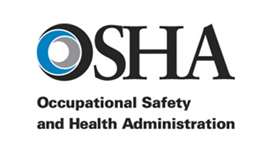OSHA issues US$400,000 in proposed penalties to demolition contractor
22 May 2024
The US Department of Labor (DoL) has cited a Chicago-based subcontractor, alleging that the company knew that it was exposing its employeers and others to “the serious dangers of asbestos” at one of its work sites in Waukegan, Illinois.
 The Supreme Court blocked OSHA’s Emergency Temporary Standard for Covid-19 vaccination madates.
The Supreme Court blocked OSHA’s Emergency Temporary Standard for Covid-19 vaccination madates.
Following a federal investigation, the DoL has cited KLF Enterprises for 36 safety and health violations, with proposed pentalties totalling US$392,000.
In November 2023, investigators with the department’s Occupational Safety and Health Administration (OSHA) opened a complaint inspection, after they observed KLF employees not wearing protective equipment amid piles of debris and steel I-beams during structural demolition of the eight-story former Lakes Behavioral Health hospital.
OSHA determined that KLF continued demolition activities — disturbing and removing asbestos used to fireproof the building’s interior — despite recognising the debris piles outside were likely asbestos-laden.
It said: “The company did not stop work or require employees to take appropriate precautions and use established control measures to protect themselves from this long-recognized hazard.”
Sukhvir Kaur, Chicago North OSHA Area Director, said: “KLF Enterprises’ decision not to stop work immediately or ensure appropriate control measures were followed when asbestos was clearly visible exposed these employees to a highly carcinogenic material with the potential for permanent, negative long-term health outcomes.
“We will hold companies accountable when they fail in their duty to protect the safety and health of their employees.”
OSHA investigators discovered the company possessed a 2019 building survey that clearly identified the extensive use of asbestos to fireproof the structural’ beams but did not inform their employees of the hazards.
OSHA’s official statement on the matter read: “In fact, agency investigators later determined the building’s insulation and fireproofing materials contained up to 15% chrysotile asbestos and KLF had also failed to notify the site’s general contractor, Reed Illinois Construction in Chicago and the building’s owner, V Covington LLC of Waukegan. of the discovery of asbestos at the site during demolition work.”
KLF Enterprises received citations for lack of compliance with OSHA’s asbestos regulations, including a willful violation for failing to notify employees and other contractors of material containing asbestos, as well as violations related to the company’s failures to require employees to wear protective equipment.
OSHA also cited the company for its failure to train employees to recognize and avoid unsafe conditions, provide medical surveillance of employees for asbestos, silica and lead exposures; and for other deficiencies in how KLF handled asbestos, silica and lead materials and waste at the site.
In addition, it also cited the company for exposing employees to safety hazards by not providing adequate fall protection around floor openings.
The agency also cited general contractor Reed Illinois Construction for not ensuring that KLF Enterprises as it its subcontractor, met federal safety and health standards for asbestos and for failing to inspect the site frequently and regularly for safety hazards, as required.
OSHA assessed the general contractor with US$32,262 in proposed penalties.
In addition, OSHA issued a serious violation to the building’s owner, V Covington LLC, with proposed a US$16,131 penalty for their failure to ensure KLF Enterprises and another subcontractor, Alliance Environmental Control Inc. complied with the federal asbestos standard.


